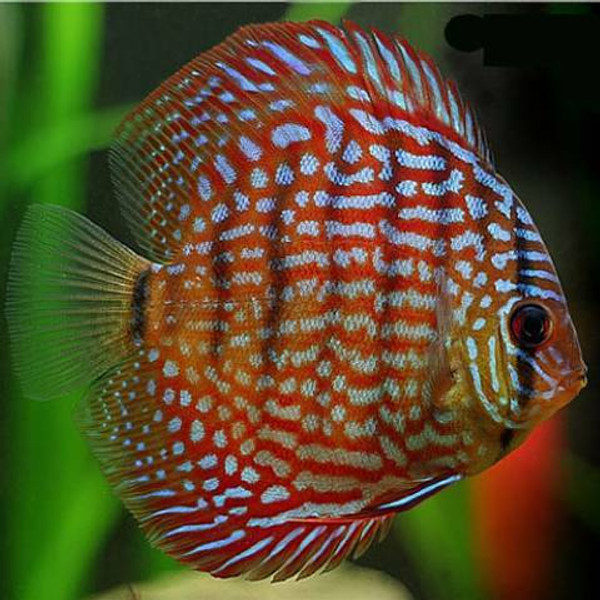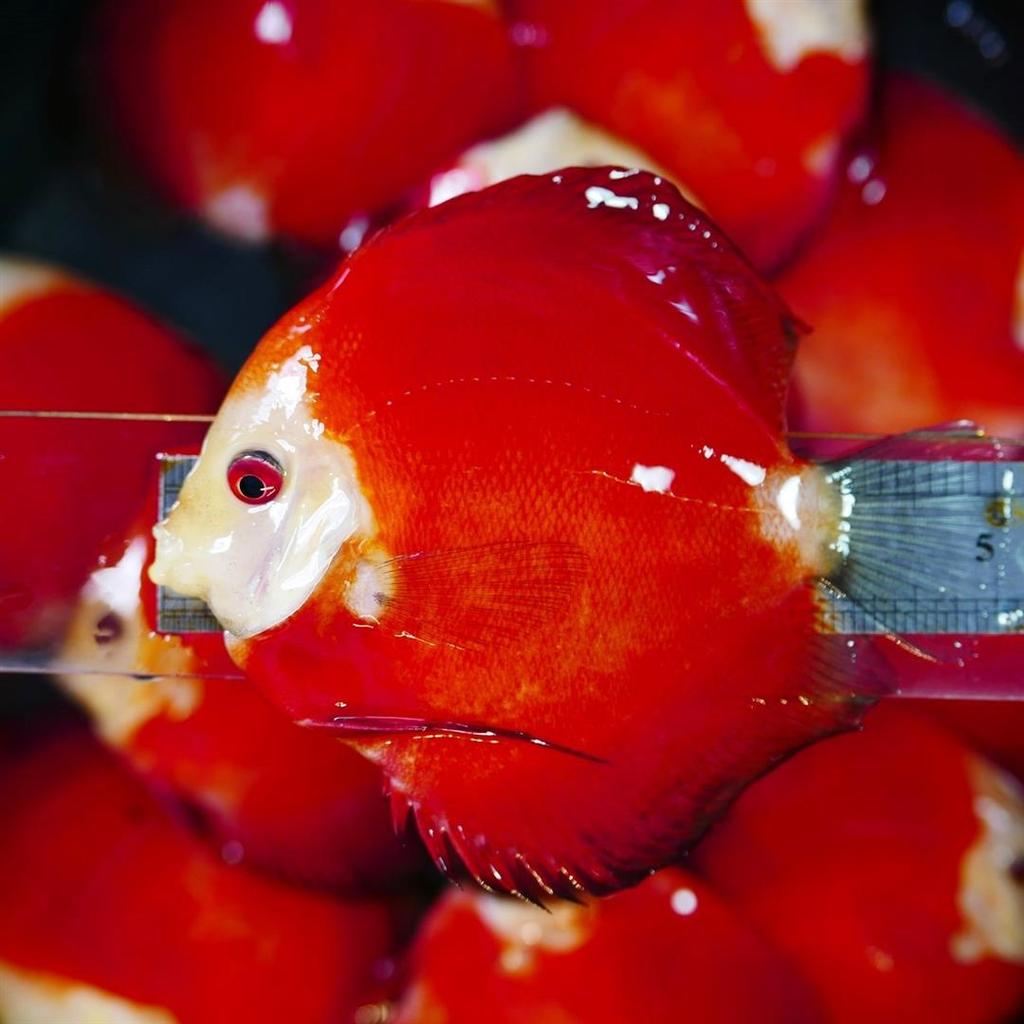Red Discus
The magnificent red discus fish is one of the most attractive and popular fish in the aquarium hobby, and for good reason. With its vibrant coloration and graceful movements, the red discus can add an element of beauty and intrigue to any aquarium. In this article, we will dive into the fascinating world of red discus and explore everything there is to know about these stunning fish.
Potential Pain Points Related to Red Discus
As with any pet, there are certain considerations to keep in mind when owning red discus. Some potential issues to be aware of include their sensitivity to water changes and their susceptibility to certain diseases. Additionally, red discus can be expensive to purchase and maintain, requiring a larger aquarium and specialized equipment to keep them healthy and happy.
Target of Red Discus
The target audience for red discus enthusiasts includes aquarium hobbyists, fish breeders, and anyone who appreciates the beauty and complexity of these fascinating fish. Whether you are a beginner or an experienced aquarist, there is always something new to learn about the care and maintenance of these unique creatures.
Summary of Main Points
Red discus are beautiful fish that add an element of grace and interest to any aquarium. However, they require specialized care and attention to keep them healthy and happy. Potential issues to be aware of include their sensitivity to water changes and their susceptibility to certain diseases. Despite these challenges, red discus can be a rewarding and enriching pet for those willing to put in the time and effort to care for them properly.
Understanding Red Discus and Its Target
My personal experience with red discus began when I was looking for a visually stunning fish to add to my aquarium. After doing some research, I discovered the red discus and was immediately struck by their vibrant colors and graceful movements. I knew that these fish would be a perfect addition to my tank, and I set out to learn everything I could about them.

Red discus are a type of cichlid fish native to the Amazon Basin in South America. They are known for their vivid red coloration and distinctive round shape. In the wild, red discus can be found living in slow-moving rivers and streams, where they feed on small aquatic invertebrates.
Caring for Red Discus
Keeping red discus healthy and happy requires a bit of effort, but the rewards are well worth it. These fish require a large aquarium with plenty of swimming space, as well as clean, well-oxygenated water. To keep water quality high, it is important to perform regular water changes and use a high-quality filtration system. Red discus also thrive in a planted aquarium, where they can explore and hide among the foliage.
In terms of diet, red discus are omnivores that require a mix of protein-rich foods and plant matter. They can be fed a variety of commercial fish foods, as well as live or frozen foods such as brine shrimp and bloodworms. It is important not to overfeed red discus, as they can be prone to obesity if given too much food.
Common Diseases and How to Prevent Them
Like all fish, red discus are susceptible to certain health issues. One common ailment is discus plague, a bacterial infection that can cause sores and lesions on the fish's body. This disease can be prevented by keeping water conditions optimal and avoiding overcrowding in the aquarium. Another potential issue is hole in the head disease, which is caused by poor water quality and can be prevented by performing regular water changes and avoiding overfeeding.

Breeding Red Discus
Breeding red discus can be a rewarding experience for experienced aquarists. To breed these fish, it is important to provide them with a clean, spacious aquarium with plenty of hiding places and a steady supply of high-quality food. It is also important to note that red discus are monogamous and mate for life. When breeding, the female will lay eggs on a flat surface and the male will fertilize them. The eggs will hatch in approximately 48 hours and the fry will become free-swimming around 5 days later.
Frequently Asked Questions About Red Discus
Q: Are red discus difficult to care for?
A: Red discus can be more challenging to care for than some other types of fish, as they require clean, well-oxygenated water and a larger aquarium with plenty of swimming space. However, with proper care and attention, these fish can thrive in a home aquarium.
Q: How can I prevent disease in my red discus?
A: The best way to prevent disease in your red discus is to maintain optimal water conditions through regular water changes and proper filtration. It is also important to avoid overcrowding and overfeeding, as these can contribute to poor water quality.
Q: Can red discus be kept with other types of fish?
A: Red discus can be kept with other peaceful fish that share similar water requirements. However, it is important to avoid fish that are overly aggressive or may bully the discus.
Q: Where can I purchase red discus?
A: Red discus can be purchased from a variety of online and brick-and-mortar retailers that specialize in aquarium fish. Be sure to choose a reputable dealer that offers healthy, well-cared-for fish.
Conclusion
The red discus is a stunning and unique addition to any aquarium, but it requires specialized care and attention to keep it healthy and happy. With proper care and attention, these fish can thrive and provide their owners with years of enjoyment and entertainment. Whether you are a seasoned aquarist or a beginner, red discus can be a rewarding and enriching pet for those willing to put in the time and effort to care for them properly.
Gallery
ROYAL RED DISCUS Regular - Bluegrassaquatics.com

Photo Credit by: bing.com / discus cichlids checkerboard 4cm
Premium Rare Alenquer Red Discus Fish

Photo Credit by: bing.com / discus alenquer
Fuji Red Discus | Discus.com

Photo Credit by: bing.com / discus red fuji
Extra Aqua World: MARLBORO RED DISCUS

Photo Credit by: bing.com / discus marlboro europadiscuscenter
Cichlids.com: Red Map Pigeon Discus
Photo Credit by: bing.com / discus red pigeon map cichlids
